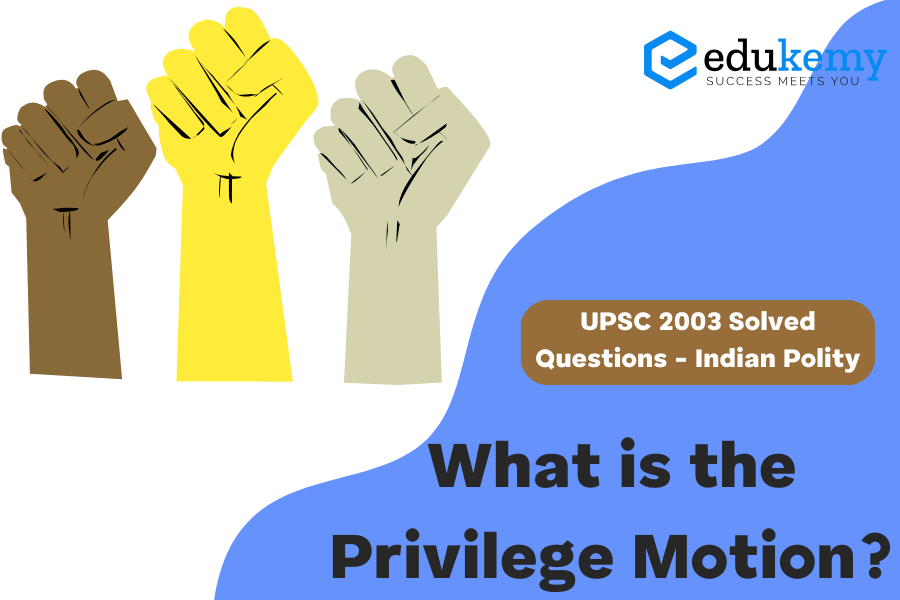
In the context of the Indian Constitution, a Privilege Motion refers to a formal process through which the Parliament or State Legislatures can deal with instances of breach of parliamentary privileges by individuals or authorities. Parliamentary privileges are certain rights and immunities enjoyed by the members of Parliament or state legislatures, individually and collectively, to ensure the effective functioning of the legislative bodies.
Parliamentary privileges include freedom of speech, freedom from arrest in civil cases during the session of the Parliament or state legislature, and the right to regulate their own internal affairs. When any of these privileges are breached, a member of Parliament or a state legislature can raise the issue by moving a Privilege Motion.
A Privilege Motion is a procedural device that allows members to bring to the notice of the House any case of breach of privilege or contempt of the House. This motion is usually moved with the permission of the presiding officer (Speaker in the case of the Lok Sabha or the Chairman in the case of the Rajya Sabha). If the motion is admitted, it is referred to the Committee of Privileges for examination, and the committee then investigates the matter and submits its report to the House.
The Privilege Motion is an essential tool for the protection of the dignity and integrity of the Parliament or state legislatures and ensures that members can carry out their duties without hindrance. It serves as a mechanism to maintain the autonomy and functioning of the legislative bodies in India.

Contents
In case you still have your doubts, contact us on 9811333901.
For UPSC Prelims Resources, Click here
For Daily Updates and Study Material:
Join our Telegram Channel – Edukemy for IAS
- 1. Learn through Videos – here
- 2. Be Exam Ready by Practicing Daily MCQs – here
- 3. Daily Newsletter – Get all your Current Affairs Covered – here
- 4. Mains Answer Writing Practice – here

